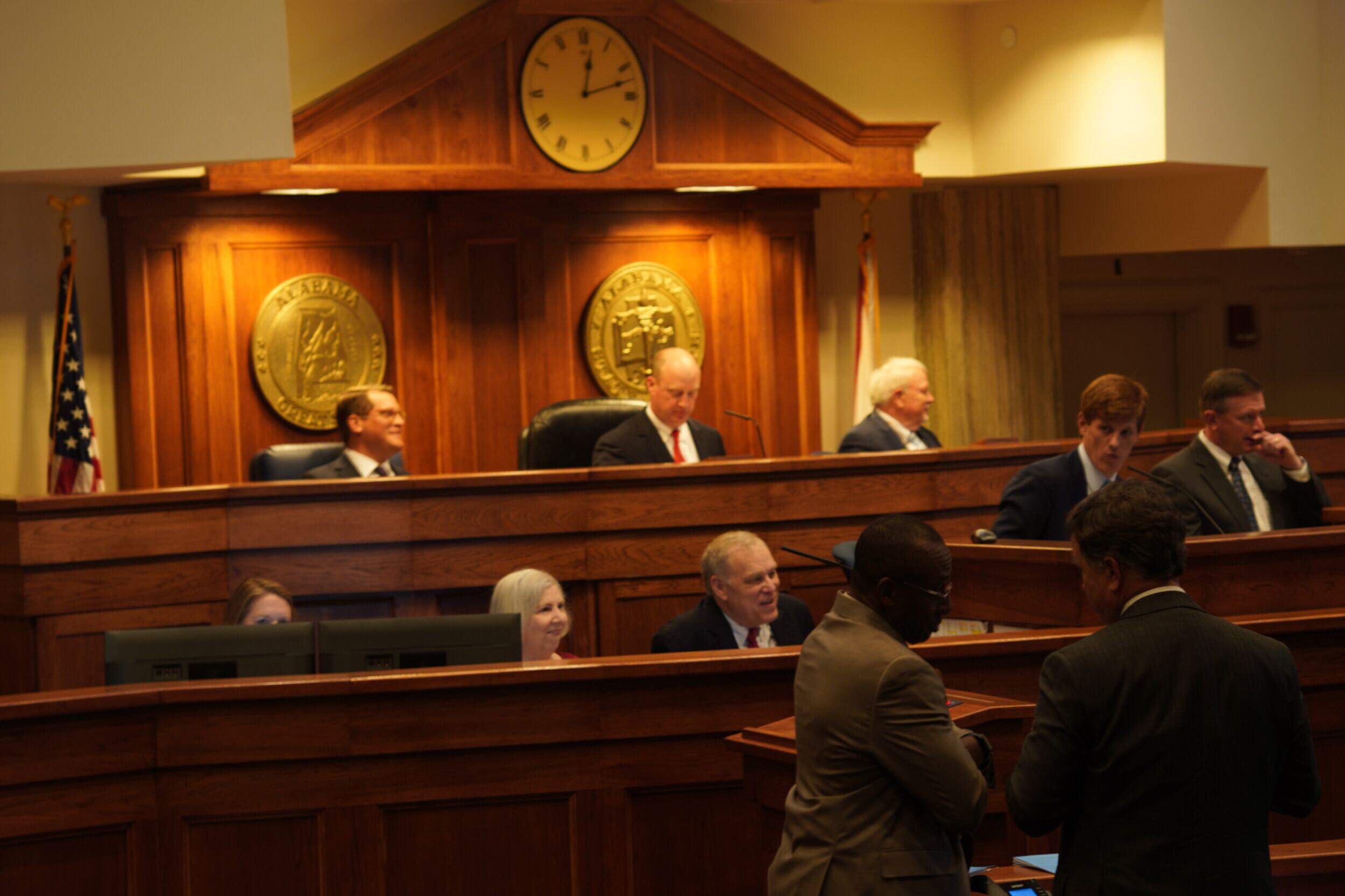The Alabama Senate voted in favor of two bills on Thursday that, if passed, would expand special privileges and tax abatements for specific corporations in the state but also impose transparency requirements on certain economic incentives.
The two bills are part of Gov. Kay Ivey’s “Game Plan,” backed by Lt. Gov. Will Ainsworth, Alabama Department of Commerce Secretary Greg Canfield and the Business Council of Alabama (BCA).
State Sen. Arthur Orr (R-Decatur) sponsored SB165, or the “Site Evaluation and Economic Development Strategy” (SEEDS) Act. If passed, the SEEDS Act would permit the State Industrial Development Authority (SIDA) to “accelerate the development of industry-ready sites.” SIDA is authorized to sell bonds to make grants to cities, counties and other local industrial development authorities to fund the development of industrial sites.
SB151, sponsored by State Sen. Garlan Gudger (R-Cullman), has been dubbed the “Transparency in Incentives Act” and would amend the Alabama Jobs Act (AJA) to require the Alabama Department of Commerce to publish information about projects receiving economic incentives on its website.
No state senators voted against either bill.
The Alabama House of Representatives also unanimously passed four bills included in Ivey’s “Game Plan” on Thursday, one of which would raise the cap on incentives under the Alabama Jobs Act (AJA) by $25 million annually for the next five years. Currently, AJA is capped at $350 million.
Though economic incentives face virtually no opposition in the Statehouse, some economists have questioned the programs.
In February, economists gathered for an event hosted by Troy University’s Johnson Center for Political Economy and were critical of such incentive programs.
Director of the Political Economy Research Institute Dan Smith said there was no evidence that economic incentive programs worked and that a better way to attract business to the state was to decrease the tax burden for everyone. He noted that tax collection per person in Alabama was relatively high compared to neighboring states.
Some businesses that have received economic incentives in the past have been accused of supporting left-wing causes and taking advantage of underage illegal immigrant labor.
Last month, leaked emails from trustees at Troy University expressed concern about research findings critical of economic incentive programs discussed at an event hosted by Troy’s Johnson Center for Political Economy earlier this year.
In the emails, Troy chancellor Jack Hawkins suggested scheduling a meeting to discuss how the trustees could vet the topics the Johnson Center gets to discuss. Troy trustee and Alabama State Bar president Gibson Vance expressed concern about pressure from Alabama Power and the BCA.
To connect with the author of this story or to comment, email will.blakely@1819news.com or find him on Twitter and Facebook.
Don’t miss out! Subscribe to our newsletter and get our top stories every weekday morning.










